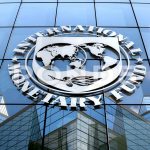A Business Recorder exclusive news report has revealed that the government has agreed to pass on the withheld base tariff increase agreed with the International Monetary Fund (IMF) in the second to the fifth review talks in February 2021 – the major stumbling block in the unsuccessful sixth review talks held in June delaying the release of 750 million SDRs. The written agreement was to pass 1.39 rupees per unit of electricity on to consumers from 1 June 2021 while 1.95 rupees per unit had already been notified during the tenure of Dr Hafeez Sheikh as the country’s de facto finance minister. It is relevant to note that the sticking point in the sixth review talks was the increase in base tariff and not on the fuel adjustment charges as they were not withheld.
Those that may criticise this as backtracking by Federal Finance Minister Shaukat Tarin who, soon after his appointment on 16 April 2021, had categorically rejected any rise in base tariff, defined as the rate determined by the lowest cost per unit of any distribution company, by plausibly arguing that the country’s economy could ill afford any further electricity price rise should bear in mind two reasons: First and foremost, that Pakistan cannot afford to suspend the Fund programme today or halfway through with obvious negative implications on our capacity to procure external loans (budgeted at over 17 billion dollars this year).
The suspension of the programme would have automatically led to multilaterals and bilaterals ceasing to release their pledges due to lack of confidence in the government’s commitment to reforms identified by the Fund and in the case of the energy sector, the World Bank, which is the lead agency in the sector. Thus backtracking was the lesser of the two evils that faced the country. The government is reportedly waiting for the determination by distribution companies’ annual tariff petitions and will subsequently decide how much of the base tariff increase would be passed on to consumers.
In other words, it must be noted that while the government has agreed to raise the base tariff the actual increase and the timing of the increase (at one go or two phases) is still to be negotiated with the Fund and one would hope that the Fund and the World Bank show some flexibility in this regard to accommodate Pakistan’s over-arching objective of growth.
Secondly and equally pertinently, Tarin took over the portfolio during one of the most difficult periods of the country’s economic history wherein upfront extremely harsh fiscal and monetary policies agreed at the time when Pakistan signed on the programme with the Fund pre-Covid-19 virtually crippled economic activity (projected at 1.5 percent), fuelled inflation (13 percent) and increased unemployment and poverty levels while raising the country’s domestic and external indebtedness manifold.
The pandemic merely added to the difficulties though it also had a positive impact because of: (i) diversion of export orders from India and other regional countries to Pakistan raising our exports by around 2 billion dollars; (ii) a massive rise in remittances, to over 29 billion dollars last year as travel bans led to cessation of hundi/hawala; and (iii) the deferment of repayment of loans and principal as and when due as a result of the G-7 Debt Relief Initiative. Unfortunately, however, these positives are outweighed by the negatives as indebtedness has risen to unprecedented levels, accounting for an ever larger chunk of current expenditure, and there has been no improvement in the energy sector.
The Circular Debt Management Plan has yet to be finalized – a requirement of the World Bank – and one would hope that appropriate measures are taken to strengthen the hand of the finance minister in this regard instead of his being forced to backtrack.





